Even if you never saw him conduct, you may well have sung one of Sir David Willcocks's carol arrangements. I remember the unnatural excitement in our church choir when the orange-jacketed Carols for Choirs 2 arrived on the scene, enhancing our repertoire with some especially juicy settings. Sir David Willcocks, who died on Thursday at the grand old age of 95, was steeped in the British choral tradition; for many, he was its heart and soul.
David Valentine Willcocks joined the Westminster Abbey Choir as a treble, where he sang under Elgar's baton, and shaped The Bach Choir over 38 years, describing his retirement in 1998 as "the end of an affair". He was first a Cambridge organ scholar and then - from 1957 to 1974 - Director of Music at King's College; many classic recordings resulted. In between, he served as an officer in the Second World War and was awarded the Military Cross for his part in the Battle of Normandy.
We are lucky to have tributes from soprano Dame Felicity Lott, who sang in many of his annual Bach St Matthew Passion performances before Easter, mezzo Sarah Connolly who reveals his seminal role in her training and David Hill, his successor as Musical Director of The Bach Choir. Kicking off alphabetically is Sam Gordon Clark CBE, a member of the Choir for over 40 years (pictured below, the choir's centenary performance of Bach's B minor Mass in 1976) and now one of its Vice Presidents. My thanks, too, to Katharine Richman, acting Chair, and Isabel Morgan. David Nice
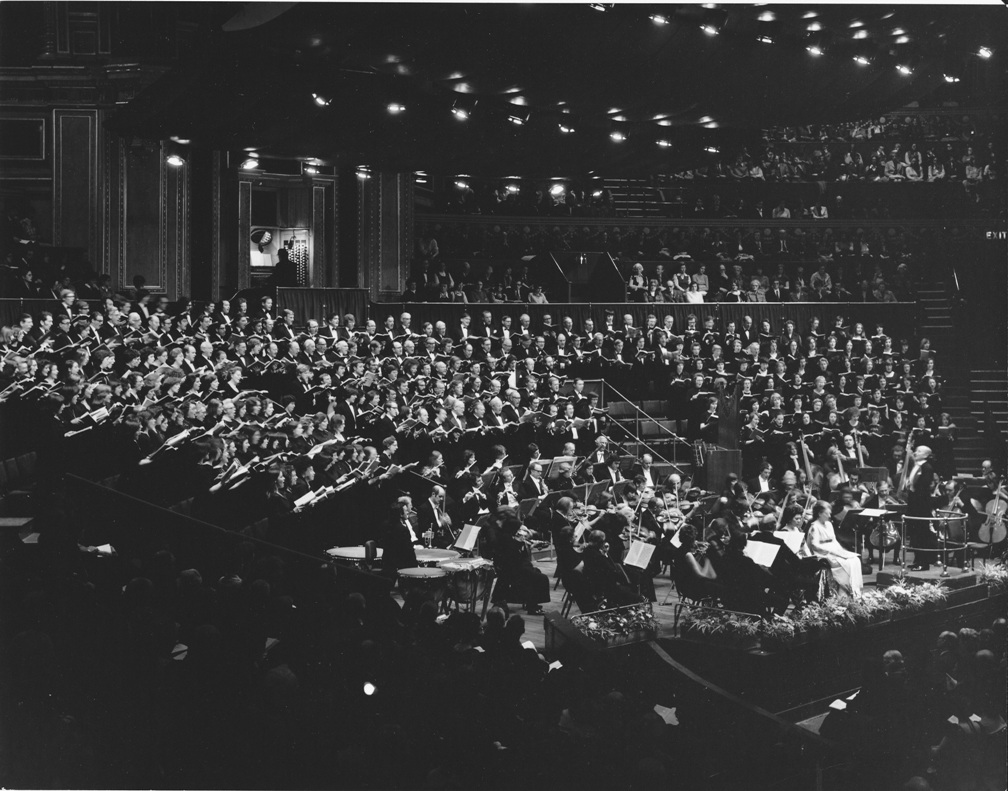
SAM GORDON CLARK
Sir David Willcocks was not only a brilliant choral trainer and conductor, but did more to develop and enhance the English choral tradition than anyone else in the 20th century. In the 25 years that I sang under his baton in The Bach Choir, I experienced someone who at every Monday evening rehearsal inspired a professional standard of singing from a group of amateurs who had just completed a hard day’s work. He did this with charm and humour, and with a twinkle in his eye, but without ever letting his high standards slip.
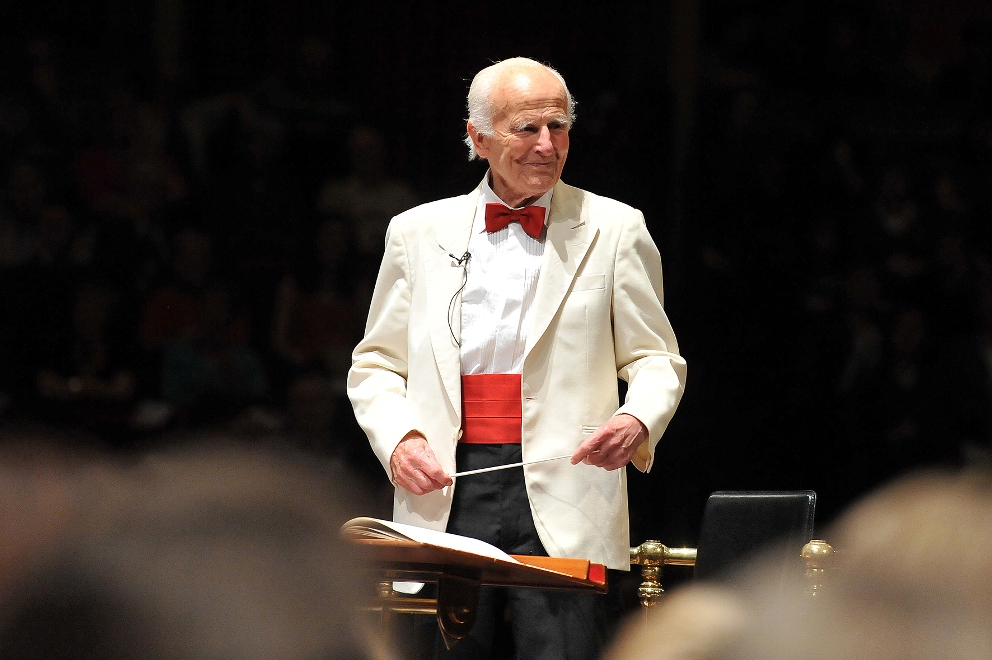
SARAH CONNOLLY
In three of my places of education, there has been one teacher who has not only trained my ears, my brain but has also given me the confidence to continue as a musician amid the fierce competition and personal self-doubt. (This never leaves me but generous teachers can soften the hammer blows). Sir David Willcocks was the greatest teacher I have ever had in my life. He was interested both in people and what they had to offer musically. The one thing that turned him off was apathy and lack of interest but he tried to rally those students with great humour and goodwill, memorably placing his handkerchief on his head during choir practice in order to get the attention of a person with her eyes permanently glued to the score. When she finally looked up he would point and yell heartily, "Yes you, I’m doing it for you! Watch me!”
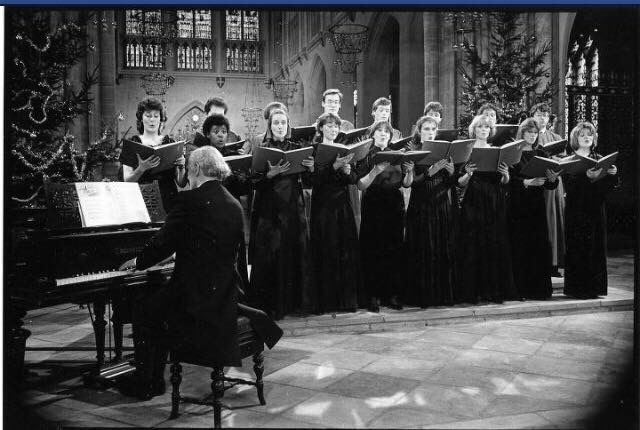 Through Sir David’s Chamber Choir (pictured left; Sarah Connolly first on left in a Christmas concert) I learned to sight-read to a high level, to listen well, to follow direction, be cool under pressure, to concentrate, all which enabled me to land a permanent place in the BBC Singers’ alto section. It meant a lot to have a practicing musician as a principal; to lead by example, by experience and as always, around such people, successful future careers are pretty inevitable.
Through Sir David’s Chamber Choir (pictured left; Sarah Connolly first on left in a Christmas concert) I learned to sight-read to a high level, to listen well, to follow direction, be cool under pressure, to concentrate, all which enabled me to land a permanent place in the BBC Singers’ alto section. It meant a lot to have a practicing musician as a principal; to lead by example, by experience and as always, around such people, successful future careers are pretty inevitable.
DAVID HILL
David Willcocks's legacy is enormous. He transformed Christmas with his arrangements which have, in turn, inspired millions throughout the world to sing his descants, in particular "O come all ye faithful" which has become an international anthem. More than that, he was a supreme choral technician creating the King's sound of the Sixties which became the vehicle for his work as composer and arranger. Throughout his long and distinguished career, he spent 38 years as Musical Director of The Bach Choir who also pioneered much of his output in Carols for Choirs in their annual carol concerts (pictured below, family carols in the early Seventies). As his successor as Musical Director in 1998, I was immediately aware of the choir's energy, excellent intonation and rhythmic attack, all hallmarks of his work.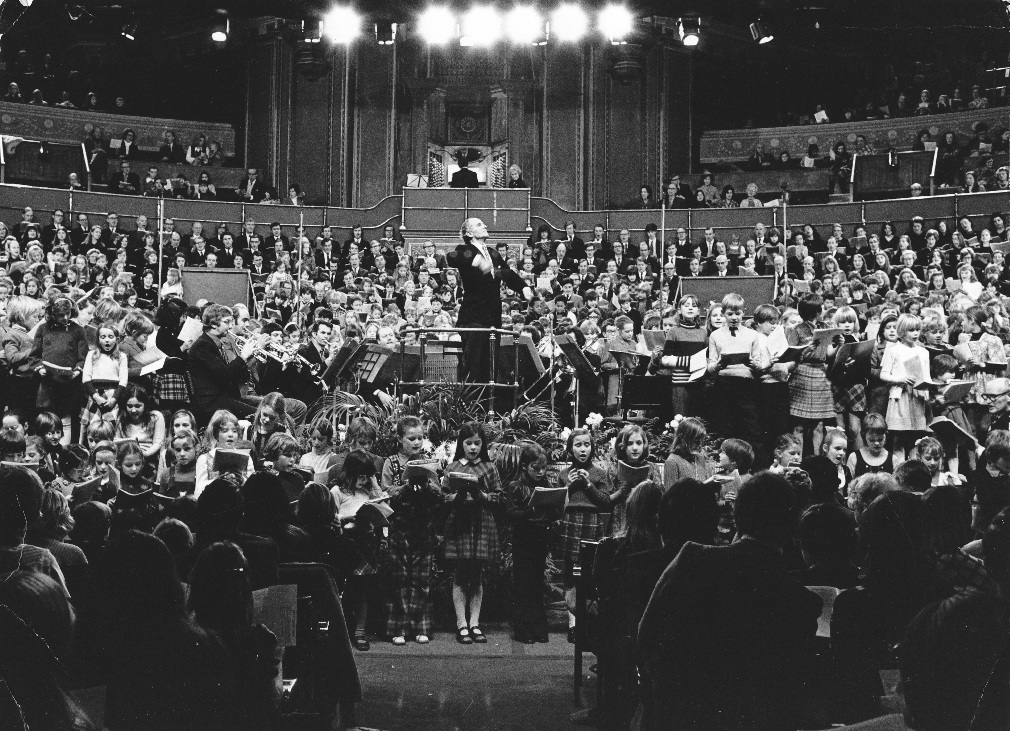
During my tenure as Musical Director, David has always been incredibly supportive, most recently in King's College Chapel, Cambridge, where he came for the rehearsal of the Verdi Requiem in June this year. The Bach Choir, Cambridge University Music Society Chorus and Orchestra joined together as they often did during his time as organist at King's. He has taught and influenced so many around the world: he will be greatly missed as the person who changed the choral scene in our country and beyond.
DAME FELICITY LOTT
I loved singing the St Matthew Passion with Sir David and the Bach Choir on the two Sundays before Easter in the Royal Festival Hall. I felt very privileged to be accepted as a part of that team, with Dame Janet Baker, Robert Tear and Stephen Roberts. They were such moving performances. (Pictured below, Felicity Lott second from right with a similarly pregnant Princess Diana and husband Gabriel Woolf after a gala performance under Willcocks. Other soloists were bass Stephen Varcoe, Catherine Wyn-Rogers and tenor Maldwyn Davies).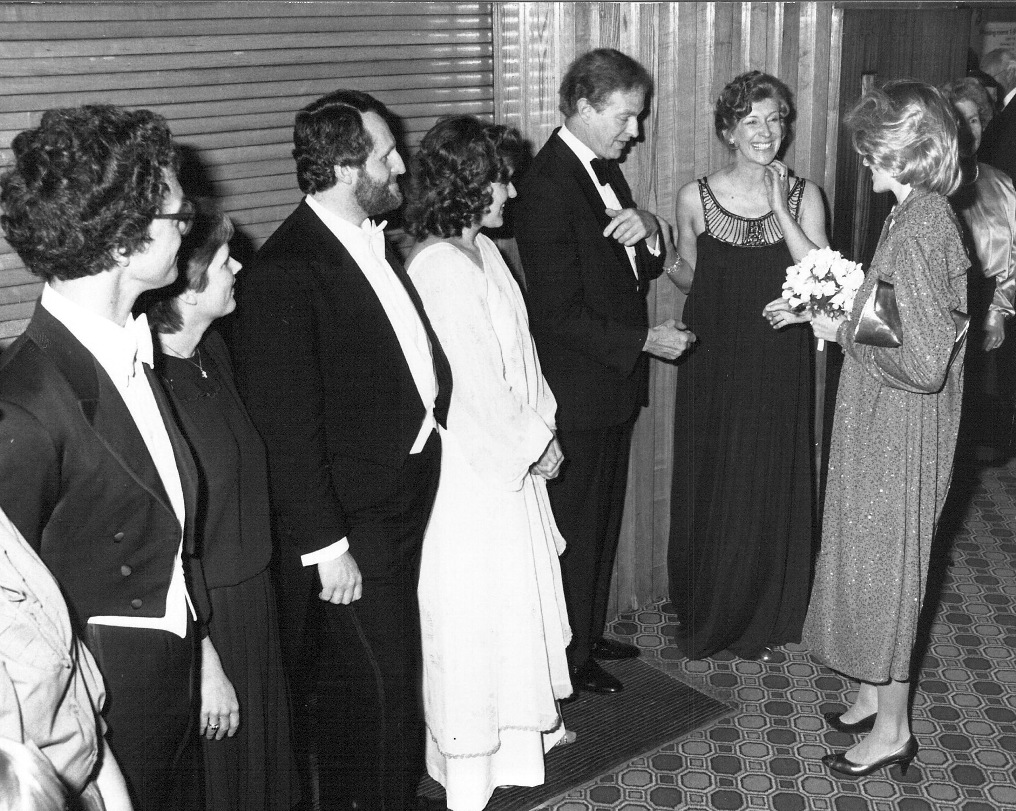
I also remember singing Mozart’s Exsultate Jubilate with David in a Bach Choir concert in May 1984 three weeks before giving birth to my daughter in June - that was perhaps moving in a different way (and I expected my child's first word to be "Alleluia!"). David always seemed to be smiling; there was something so youthful about him, and he was so full of fun. He has made a vast contribution to the musical life of this country, in so many ways.
Sir David Willcocks, born 30 December 1919, died 17 September 2015













Add comment